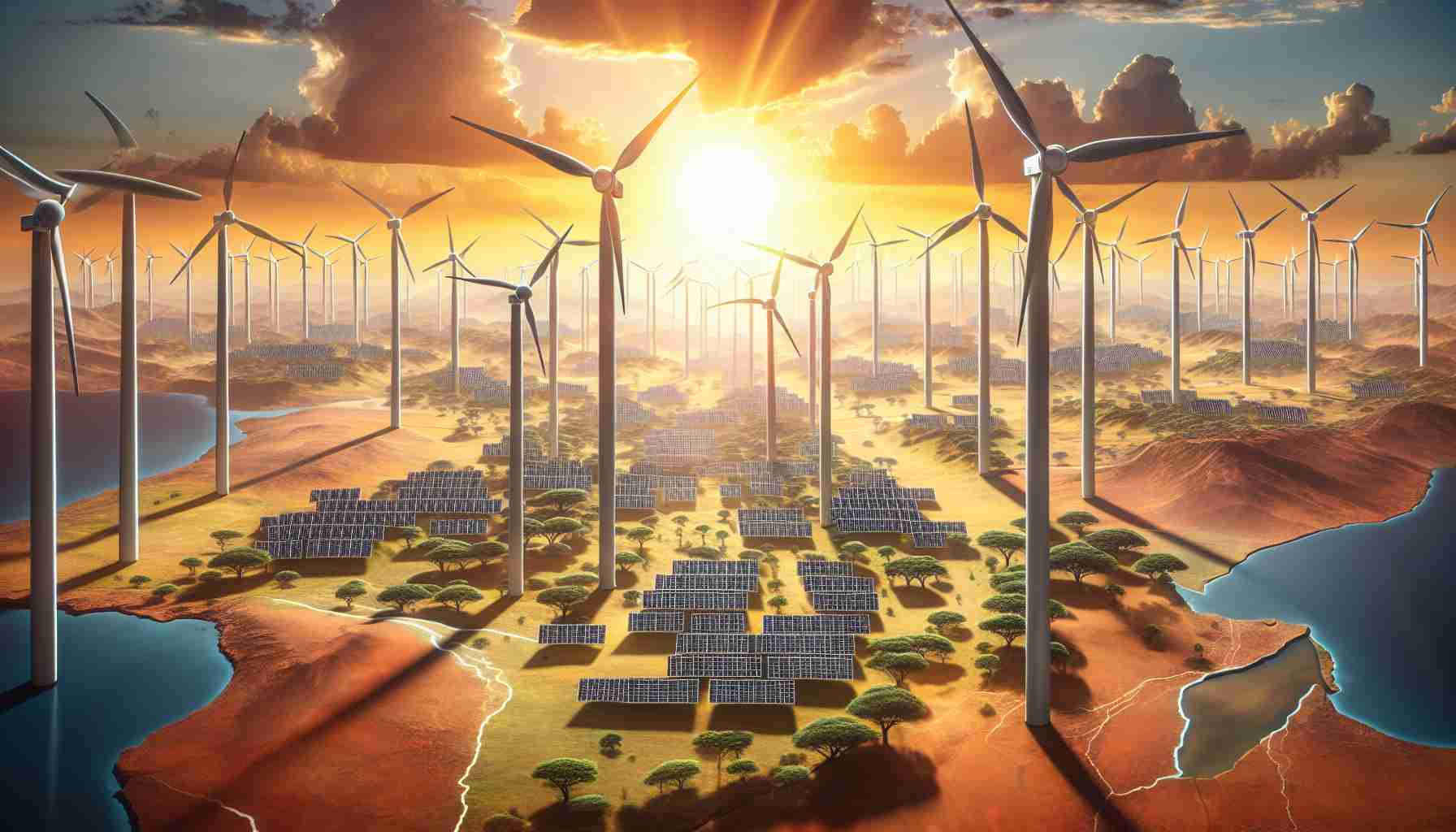
China’s Green Finance in Africa
A significant shift is emerging in China’s investment strategy in Africa, with a growing focus on sustainable energy projects. While a substantial amount of China’s financial support to African countries has traditionally been allocated to infrastructure and trade, recent developments indicate a changing landscape. Through initiatives like the Belt and Road Initiative (BRI), China is beginning to prioritize funding for renewable energy ventures.
The Transition to Renewable Energy
With Africa aiming to bring 300 GW of renewable energy online by 2030, the continent faces significant funding gaps in achieving its green energy targets. China’s expertise in green finance, demonstrated through its successful issuance of green bonds, could offer a valuable opportunity for Africa to access the necessary funding for sustainable energy projects.
Chinese Investments in Africa’s Green Future
Projects like the Garissa Solar Power Plant in Kenya and the Nyabarongo II Hydroelectric Power Station in Rwanda exemplify China’s increasing support for renewable energy initiatives in Africa. By backing such projects, China is not only contributing to the continent’s energy transition but also fostering environmental sustainability and economic development.
Looking Ahead
As China aims to become carbon neutral by 2060, its investments in Africa’s renewable energy sector are expected to grow. By leveraging its position as a global leader in green technologies, China has the potential to drive significant advancements in Africa’s sustainable energy future. Collaboration between China and African nations in the renewable energy sector could pave the way for a more environmentally conscious and economically prosperous future for the continent.
China’s Expanding Role in Africa’s Sustainable Energy Future
China’s involvement in Africa’s sustainable energy landscape is poised to deepen as the country continues to ramp up its support for renewable energy initiatives on the continent. While previous articles have highlighted the beneficial collaboration between China and African nations in the renewable energy sector, there are additional key developments and considerations that warrant attention.
New Developments in Chinese Investment
In addition to established projects in Kenya and Rwanda, Chinese companies are increasingly exploring opportunities in other African countries to bolster their renewable energy portfolios. For instance, recent reports suggest growing Chinese interest in solar energy projects in Ethiopia and wind power initiatives in South Africa. These expansions signify a wider reach of China’s green energy investments across the African continent.
Key Questions and Challenges
1. How does China’s approach to green finance in Africa differ from that of other global players?
China’s emphasis on infrastructure development alongside renewable energy projects sets it apart from traditional Western financiers. While China’s investments bring much-needed funding, concerns have been raised about the potential debt burdens on African nations and the long-term implications of such financial arrangements.
2. What are the environmental implications of China’s involvement in Africa’s sustainable energy future?
While China’s support for renewable energy projects is laudable, questions remain about the environmental impact of Chinese investments in other sectors, such as mining and construction. Balancing economic growth with environmental stewardship is a critical challenge facing this evolving partnership.
Advantages and Disadvantages
Advantages:
– China’s financial muscle can accelerate the development of Africa’s renewable energy sector.
– Technology transfers and knowledge sharing from China can enhance Africa’s green energy capabilities.
– Increased competition among investors may lead to more favorable terms for African countries seeking funding for sustainable projects.
Disadvantages:
– Debt sustainability concerns may arise due to the magnitude of China’s financial involvement in African infrastructure projects.
– Geopolitical tensions and unequal power dynamics could influence the direction of energy projects and resource allocation.
– Allegations of unsustainable business practices by some Chinese firms operating in Africa may tarnish the reputation of the overall partnership.
As China’s role in Africa’s sustainable energy future expands, stakeholders must address these complex issues to ensure a mutually beneficial and environmentally responsible energy transition on the continent. Collaboration, transparency, and strategic planning will be essential to navigate the challenges and maximize the opportunities presented by this evolving partnership.
For more information on China’s sustainable energy investments in Africa, visit China Daily.



